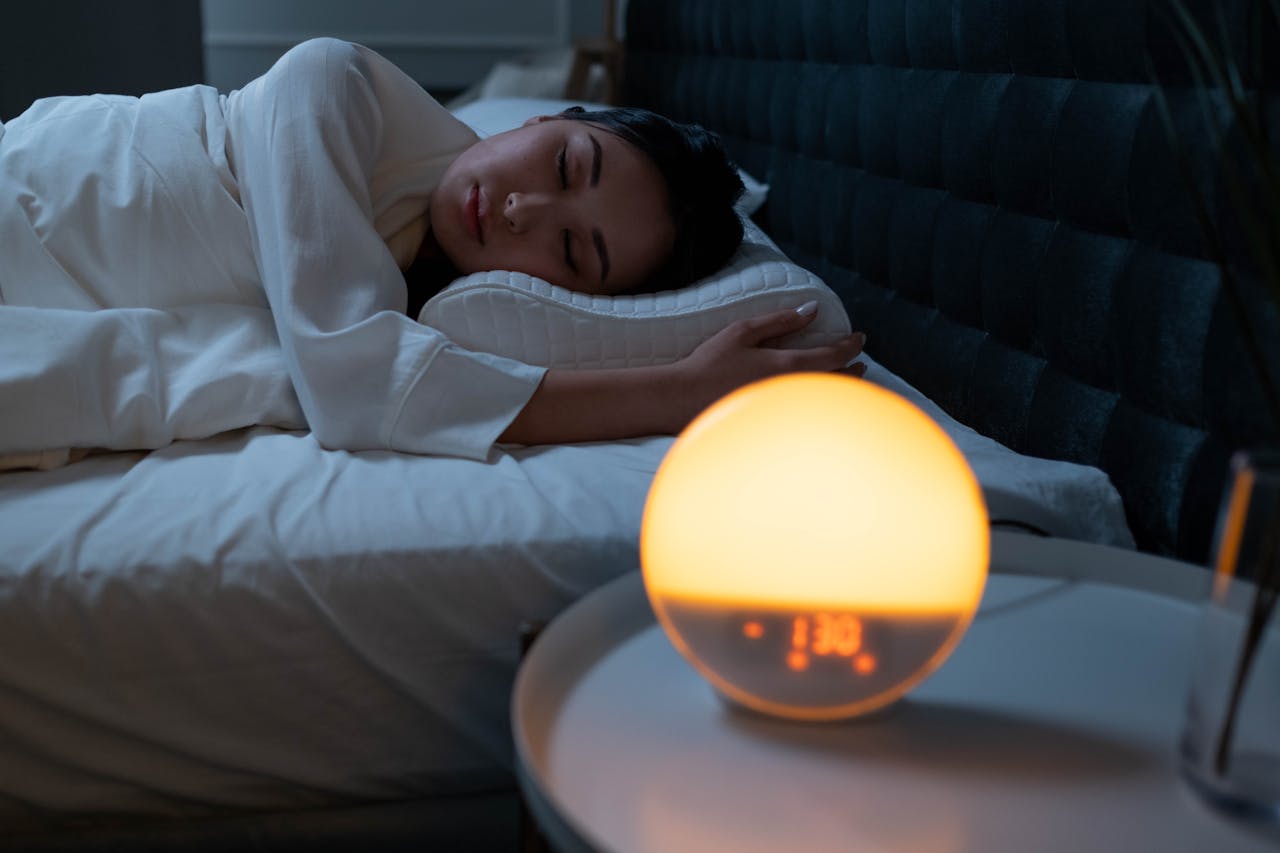Smart Bedroom Technology: A Guide to Better Sleep Through Connected Living

The integration of smart technology into bedrooms marks a significant shift in how we approach rest and relaxation. Modern bedrooms now serve as personalized sanctuaries where lighting, sound, and climate work together to create optimal sleeping conditions. As a mattress and bedding specialist, we've watched this transformation closely, noting how smart technology pairs with quality sleep essentials to maximize comfort and rest.
This comprehensive guide will show you how to build a tech-enabled bedroom that supports your sleep goals while maintaining the peaceful atmosphere essential for quality rest.
Smart Lighting Systems for Better Sleep
Smart lighting is a cornerstone of bedroom technology. Color-changing LED bulbs can match your natural circadian rhythm, gradually dimming as bedtime approaches and brightening slowly for gentle morning wakeups. When paired with our organic cotton bedding, these lighting solutions create a naturally calming environment that signals your body it's time to rest.
Smart bulbs from brands like Philips Hue and LIFX offer scheduling features that automate your lighting routine. You can program them to shift from energizing bright white light during the day to warm, soft tones in the evening. These systems often integrate with other smart home devices, allowing you to create complete bedtime scenes that adjust multiple elements simultaneously.
Sound Solutions for Peaceful Nights
White noise machines have gone digital, with smart versions offering unprecedented control over your sonic environment. Modern options connect to your home network, allowing remote control through smartphone apps or voice commands. Many devices offer various sound profiles - from rainfall to ocean waves - that mask disruptive noises and promote deeper sleep.
These sound machines work particularly well with our pressure-relieving mattresses, creating a multi-sensory approach to rest. Some advanced models even analyze room acoustics to deliver optimal sound distribution, ensuring consistent coverage throughout your sleep space.
Climate Control and Air Quality
Smart thermostats and connected humidity sensors help maintain ideal sleeping conditions throughout the night. Research shows that temperatures between 60-67°F (15-19°C) typically provide the best environment for sleep. Smart climate systems can automatically adjust to these optimal ranges before bedtime.
Air quality monitors integrated with smart air purifiers help maintain clean, breathable air, which is particularly beneficial for allergy sufferers. These devices often include scheduling features that align with your sleep patterns, running at higher speeds during the day and quieting down at night.
Creating Automated Bedtime Routines
The real power of bedroom tech comes from automation. Modern smart home systems can coordinate multiple devices to create comprehensive bedtime routines. A single command can trigger your preferred sequence: gradually dimming lights, lowering room temperature, activating white noise, and closing smart blinds.
These automated routines complement our sleep products perfectly. While our mattresses and organic bedding provide physical comfort, smart automation handles environmental factors that affect sleep quality.
Integration and Control Systems
Most bedroom tech can be controlled through major smart home platforms like Amazon Alexa, Google Home, or Apple HomeKit. These systems offer voice control and smartphone apps for easy management. When selecting devices, check compatibility with your preferred platform to ensure seamless integration.
Smart switches and motion sensors can add another layer of convenience, automatically triggering routines based on your movement or schedule. These systems often include away-from-home controls, letting you adjust settings remotely through smartphone apps.
The Future of Smart Bedrooms
Looking ahead, AI-driven sleep technology continues to advance. New systems analyze sleep patterns and automatically adjust room conditions based on your preferences and biological responses. Smart mattress covers and pillows with built-in sensors may soon communicate with other bedroom devices to optimize your sleep environment in real-time.
As we continue to develop our line of sleep products, we're mindful of how they work alongside these technological advances. Our focus remains on creating bedding that complements smart technology while maintaining the natural, comfortable sleep environment our customers value.
Creating a smart bedroom doesn't require complex technical knowledge or a massive investment. Start with basic elements like smart bulbs and a connected sound machine, then expand your system as needed. Remember that technology should serve your comfort and rest, not complicate it. Combined with quality bedding essentials, these smart solutions can transform your bedroom into a personalized sleep sanctuary that supports your well-being night after night.




